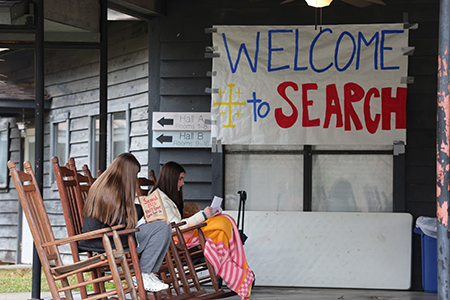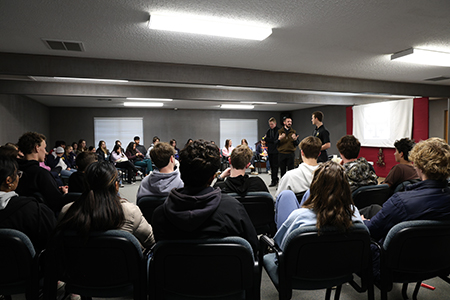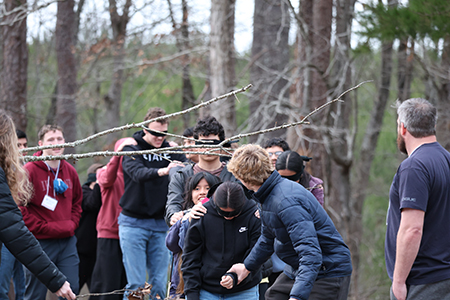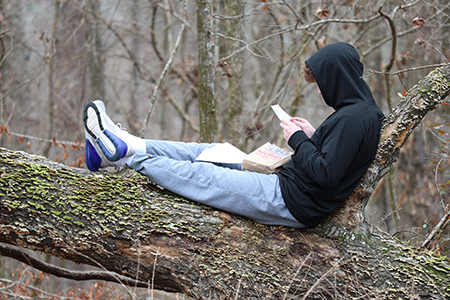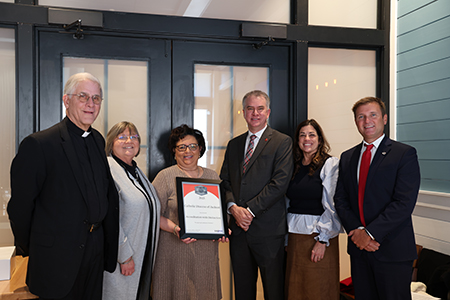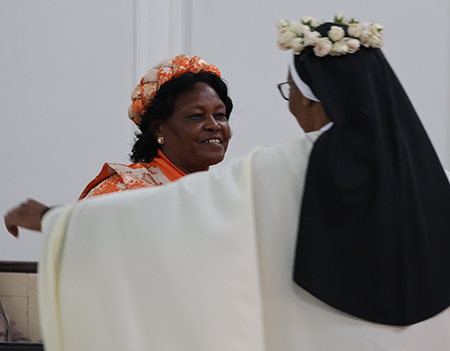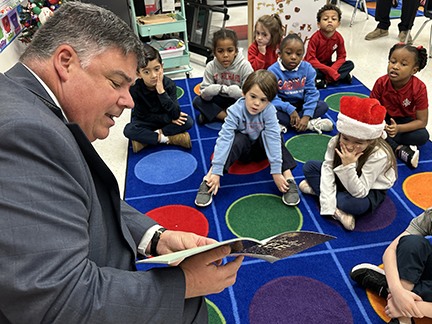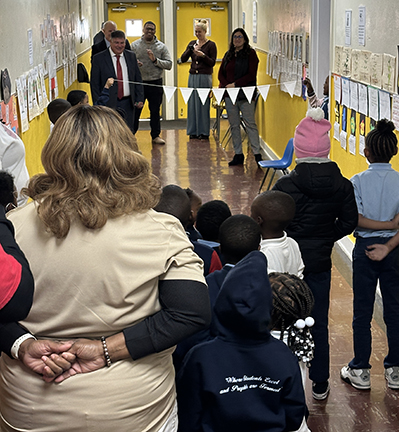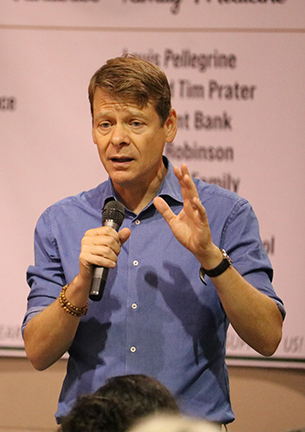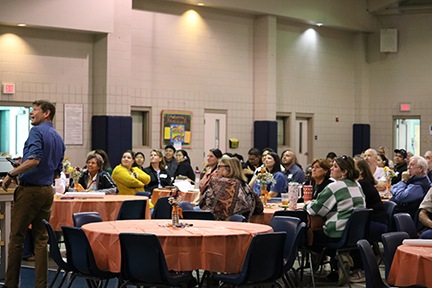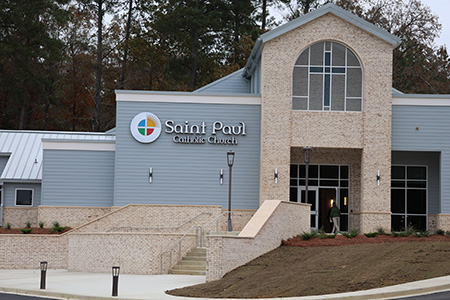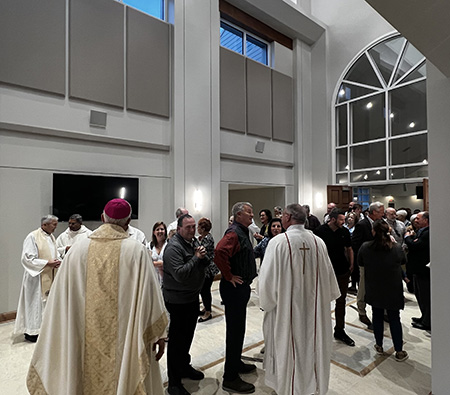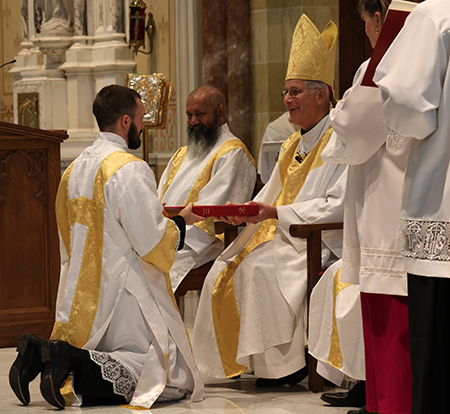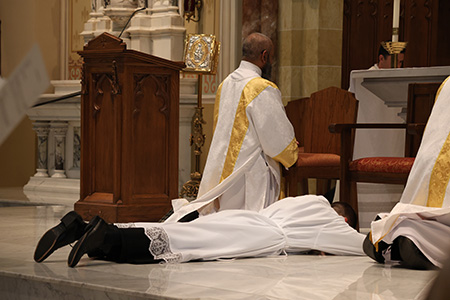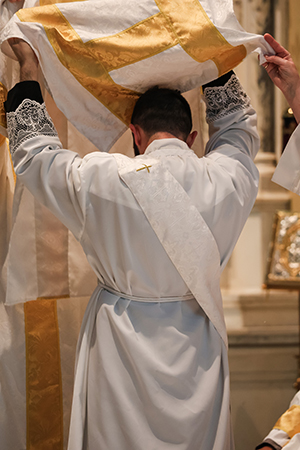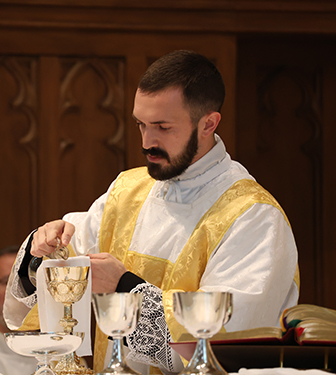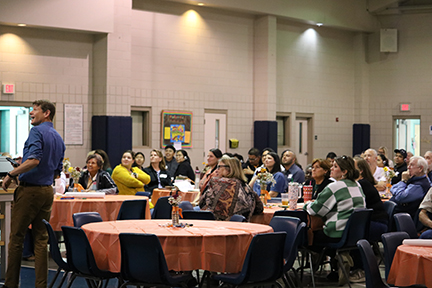By Joanna Puddister King
GALLMAN – High school juniors and seniors from across the Diocese of Jackson gathered at Camp Wesley Pines near Hazlehurst Jan. 16–18 for the annual diocesan SEARCH Retreat. SEARCH is a Catholic youth retreat modeled after the Cursillo retreat for adults, designed specifically for high school juniors and seniors who desire to deepen their faith and relationship with Christ.
A retreat “for teens, led by teens,” SEARCH is an experience like none other, with a strong focus on vocations. It engages youth in a special way and calls them to live out their Catholic faith in a bold, real, active and healthy way.
“Much of what happens in the retreat is kept a mystery, but a few things are certain – you will have fun, you will be challenged to grow in your faith, and chances are you will make a few new friends,” said Abbey Schuhmann, coordinator of the Office of Youth Ministry for the Diocese of Jackson.
The retreat team is primarily made up of a youth staff of teens who have previously attended a SEARCH retreat. Once a teen attends a SEARCH weekend, he or she has the opportunity to apply to staff future retreats, Schuhmann explained.
While the teens lead the retreat, adult leaders and clergy serve largely behind the scenes. Deacon Will Foggo assisted throughout the weekend and led adoration and benediction, helping guide the teens in prayer and worship. Seminarians Joe Pearson and Henry Haley were also present, offering witness talks and spending time with participants to share about vocational discernment and life in seminary.
The SEARCH model gives youth the opportunity to demonstrate and carry out servant leadership. The retreat would not be possible without the support of adult volunteers who have served in this ministry for many years.
“We are especially grateful to Ann and Jeff Cook for continuing to serve as volunteer adult SEARCH coordinators,” Schuhmann said. “Without their dedicated service, this ministry would not be where it is today.”
The SEARCH ministry continues to grow in the diocese, with each retreat welcoming new participants into what has become a strong and enduring SEARCH family.
